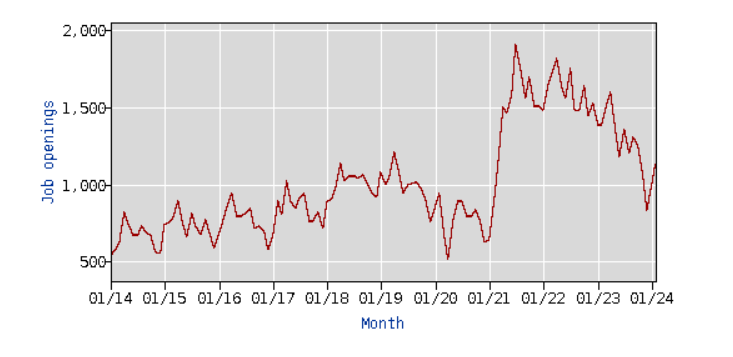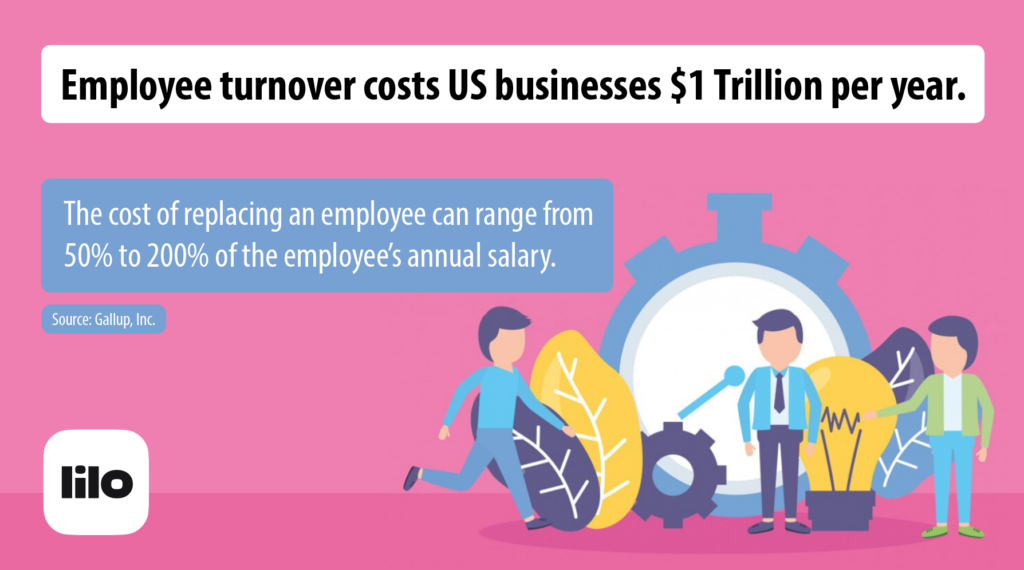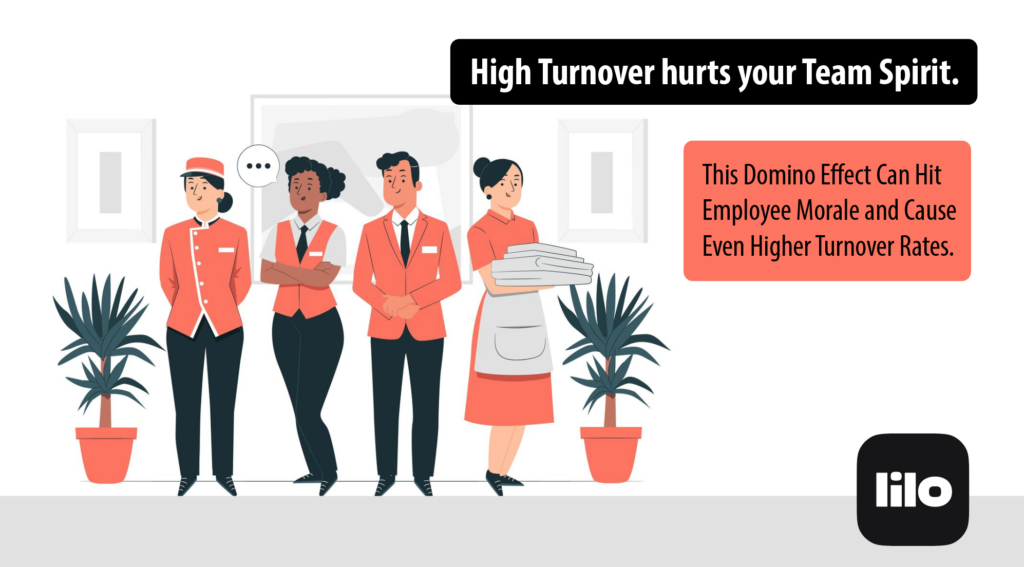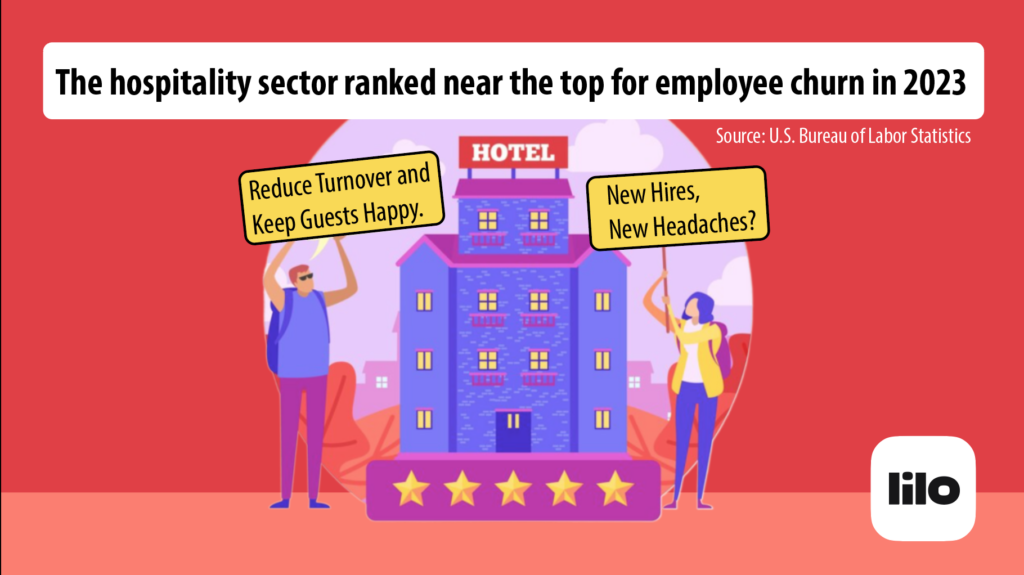Employee turnover is a major challenge in many industries, and the hospitality sector is no exception.
According to the U.S. Bureau of Labor Statistics (BLS) Job Openings and Labor Turnover (JOLTS) report, turnover rates in the hospitality sector were second highest among all sectors in 2023.

The situation has eased up a bit since the pandemic when hospitality employee turnover rates soared to the top position. But, hotels can’t let their guard down.
Hotel GMs, HR managers, and others in leadership roles need to stay sharp because the problem of employee turnover in the hotel industry is here to stay.
Let’s look at the five ways employee turnover affects hotels.
1. Financial Implications of Employee Turnover on Hotels
High hotel turnover rates hit the bottom line hard. Think about it: recruiting, hiring, training—all those costs add up fast.
According to Gallup, the cost of replacing an employee can range from 50% to 200% of the employee’s annual salary.

Considering the specialized skills hotels need, the cost of recruiting, hiring, and training new employees for housekeeping, maintenance, and F&B can be exorbitant.
But, it doesn’t stop there.
When experienced staff leave, productivity takes a nosedive, and so does revenue.
2. Decline in Guest Service Quality and Loss of Reputation
New hotel employees often lack the necessary skills and knowledge to maintain the guest experience. Therefore, service quality takes a nosedive when turnover rates are high.
Discerning guests start perceiving this decline in service quality leading to negative reviews and loss of business for the hotel.
3. Disruption of Daily Hotel Operations
Constantly having to recruit and train new employees diverts valuable time and resources away from essential tasks.
This perpetual state of flux often leads to labor shortages, a major challenge in the hotel industry.
Severe hotel staff shortage can compromise even your most experienced employees’ ability to deliver quality service.
This disruption creates a chaotic work environment, which in turn, hits employee morale, causing even higher turnover rates – a vicious cycle for any hotel.
4. Loss of Knowledge and Problem-Solving Ability
Seasoned professionals possess a wealth of experience and insight into the intricacies of hotel operations.
When they leave, hotels also lose the treasure trove of knowledge they accumulated over months or years in diverse roles in your hotel.
This knowledge encompasses everything from understanding guest preferences to handling operational challenges unique to your hotel.
5. Adverse Impact on Hotel Workplace Culture
High turnover rates can create a sense of instability and uncertainty among remaining staff members.
Frequent departures can erode trust and when trust takes a hit, collaboration goes out the window, and morale tanks faster than you can say “retention.”

Veteran hotel GMs and HR managers know it can be a downward spiral that’s tough to climb out of.
Final Words
Employee turnover affects everything from a hotel’s service quality and revenue to work culture and operational efficiency.
Gig economy can help mitigate labor shortages to some extent but it does not address the challenge of employee turnover .
Therefore, hotels must prioritize employee retention strategies to create a supportive work environment, provide opportunities for growth and development, and recognize and incentivize employee contributions.


